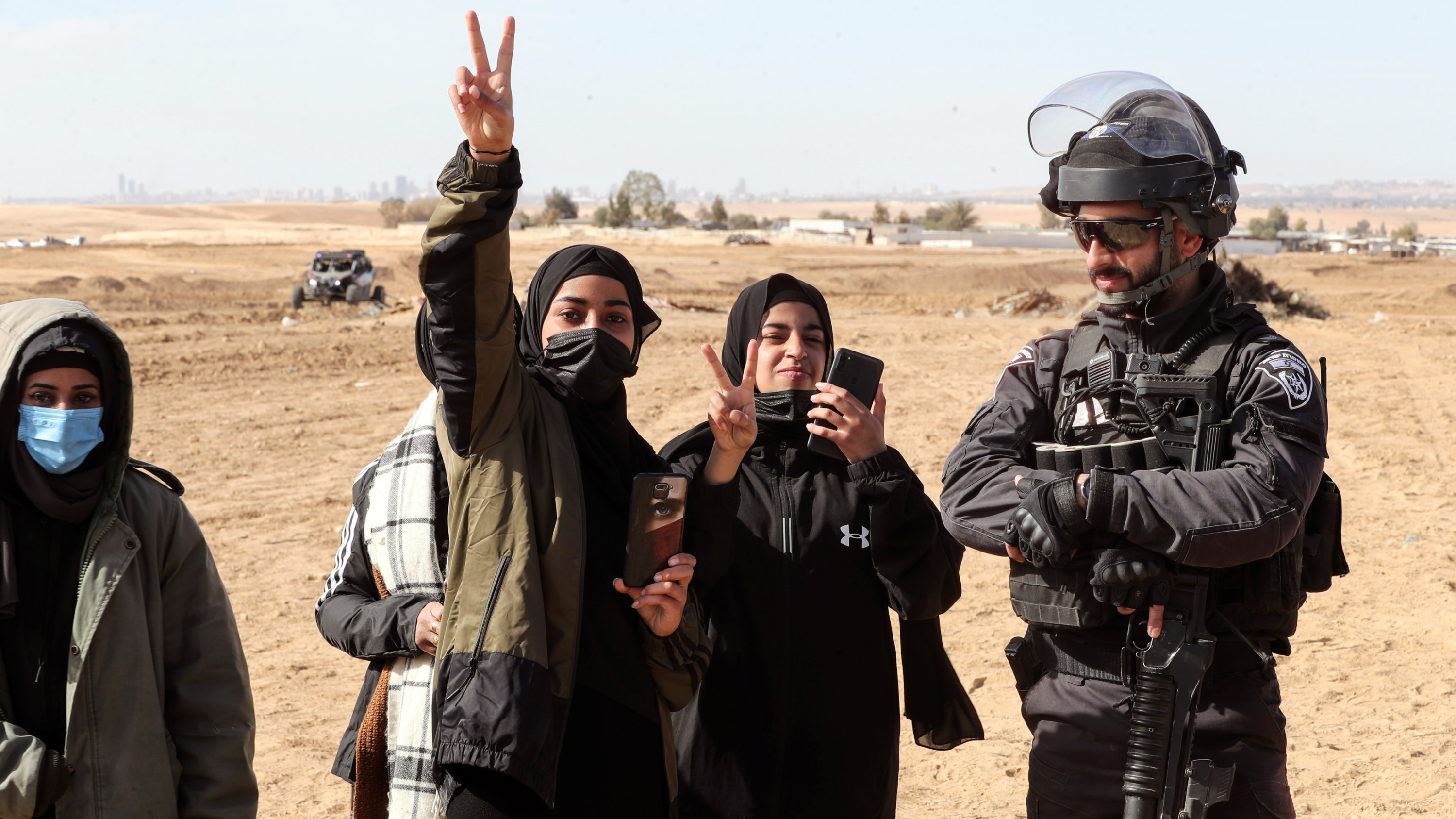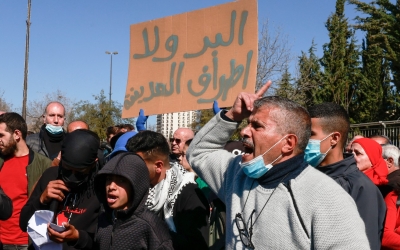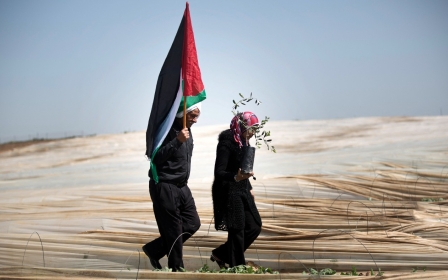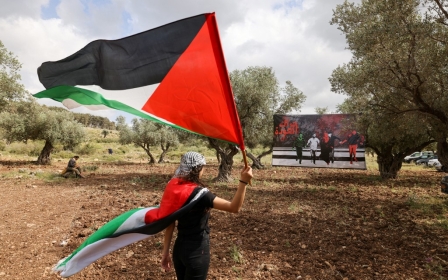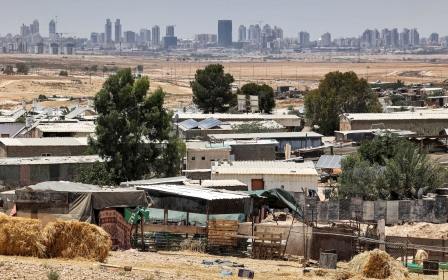Israel: Court orders removal of Palestinian Negev village to build Jewish neighbourhood
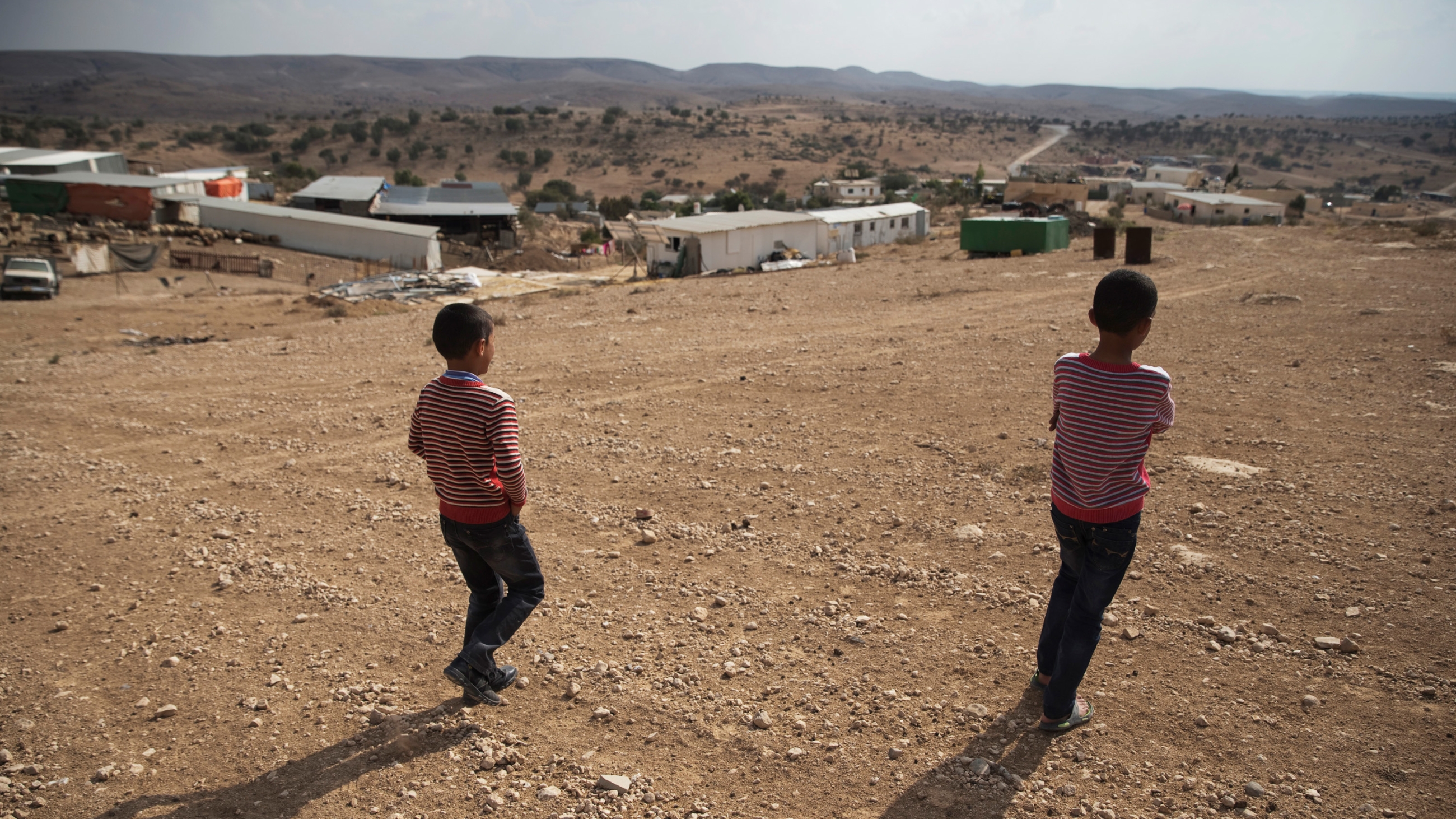
An Israeli court has given Palestinian families in the Negev (or Naqab) until March of next year to destroy their homes and leave their village to make way for the expansion of a nearby Israeli city.
The decision will affect 500 native people from the Ras Jrabah village, who have been left in a state of shock after the decision by the Be'er Sheva Magistrate's Court on Monday.
Residents of the village, which predates the establishment of the state of Israel in 1948, say the news fell on them like a "thunderbolt" and was difficult to process.
"Young people have been calling me since the morning, telling me about their concerns for the future," Musa al-Hawashleh, a resident of Ras Jrabah, told Middle East Eye.
"We don't know where we will go. We have been here before the state of Israel and now we will be expelled from our homeland," he added.
New MEE newsletter: Jerusalem Dispatch
Sign up to get the latest insights and analysis on Israel-Palestine, alongside Turkey Unpacked and other MEE newsletters
The Ras Jrabah case began in 2019 when the Israel Land Authority (ILA) filed 10 eviction lawsuits against 127 residents of the village and their families.
The government body argued that the presence of Ras Jrabah - which is unrecognised as an official village by the state - hindered the expansion of the nearby city of Dimona.
Dimona was built on land owned by the nomadic indigenous Palestinian tribe of al-Hawashleh, which also owns land in the adjacent Ras Jrabah village.
The government wants to remove Ras Jrabah - an area of around 34 hectares - and replace it with a new neighbourhood for Jewish citizens called Rotem, which will include thousands of housing units.
'We have been here before the state of Israel and now we will be expelled from our homeland'
- Musa al-Hawashleh, Ras Jrabah resident
Earlier this week, a magistrate's court ruled in favour of the government and ordered the Palestinian families to leave the village they've lived in for generations, giving them a deadline of 1 March 2024.
The families were also ordered to pay a sum of 117,000 shekels ($31,700) to cover legal expenses.
Adalah, the Haifa-based legal centre for Arab minority rights, which is representing the Palestinian residents, said they will appeal against the decision.
It argued that the court "disregarded" the residents' arguments in its judgment.
"Since the Nakba, the state of Israel has employed a range of tools and policies to forcibly displace the Bedouin residents in the Naqab," Adalah said in a statement.
"Their livelihood has been confined to restricted areas and segregated townships, and they have been subjected to harsh living conditions, with no regard for their basic needs and way of life.
"The forced displacement of Ras Jrabah's residents to expand the Jewish city of Dimona, which was built on the residents' lands, serves as clear evidence that Israel is committing the crime of apartheid against its Palestinian citizens."
'Judaisation' of the Negev
Hawashleh says that while residents will protest against the decision and fight it all the way in the courts, they have little hope in the current ultranationalist government, which has placed the acceleration of the "Judaisation" of the Naqab at the heart of its guiding policy.
"The new government is worse than the one before, they want to demolish the village to build a new neighbourhood… The government has not offered alternative suggestions," Hawashleh told MEE.
"It has been difficult to process and explain to the younger people. I worry about them, their future and where they will go," he added.
According to Adalah, Ras Jrabah residents suggested that their village be integrated into the newly planned part of Dimona, a request that was turned down.
The village is one of around 30 unrecognised Palestinian villages in the Negev region of Israel's southern territory.
Almost 100,000 Palestinians who hold Israeli citizenship live in these unrecognised villages, which are denied any infrastructure or support from the government.
There are no means of transportation, no roads, no schools, and Israeli authorities don't collaborate with their local leadership.
Palestinian citizens of Israel are the descendants of the native population which was violently displaced by Zionist militias during the creation of Israel in 1948.
Today there are almost two million Palestinian citizens of Israel, who are estimated to make up 20 percent of the country's population.
At least 300,000 live in the Negev region, and say that Israeli authorities have attempted to force them out and destroy their nomadic way of life for decades, through various tactics.
These include confiscation of lands from native Palestinians and turning landowners into tenants. Additionally, the Israeli government has been accused of preventing the expansion of Palestinian villages and encircling them with new Jewish settlements.
"The goal of the Israeli government is to take control over Arab land in the Naqab and to expel entire communities from their land," Youssef al-Atawneh, a Palestinian member of the Israeli parliament with the Hadash-Ta'al coalition, told MEE.
"This has been ongoing since 1948 and some families have been displaced twice," he added.
The MP said he is collaborating with a Negev-based committee to organise a large-scale protest over the expulsions and projects taking place.
"People are very angry over the racism that is taking place," he said.
"But despite the difficult circumstances, fines and displacements, people are remaining steadfast and strong," he added, predicting that the recent court decision will likely inflame tensions in the Negev.
Middle East Eye delivers independent and unrivalled coverage and analysis of the Middle East, North Africa and beyond. To learn more about republishing this content and the associated fees, please fill out this form. More about MEE can be found here.


